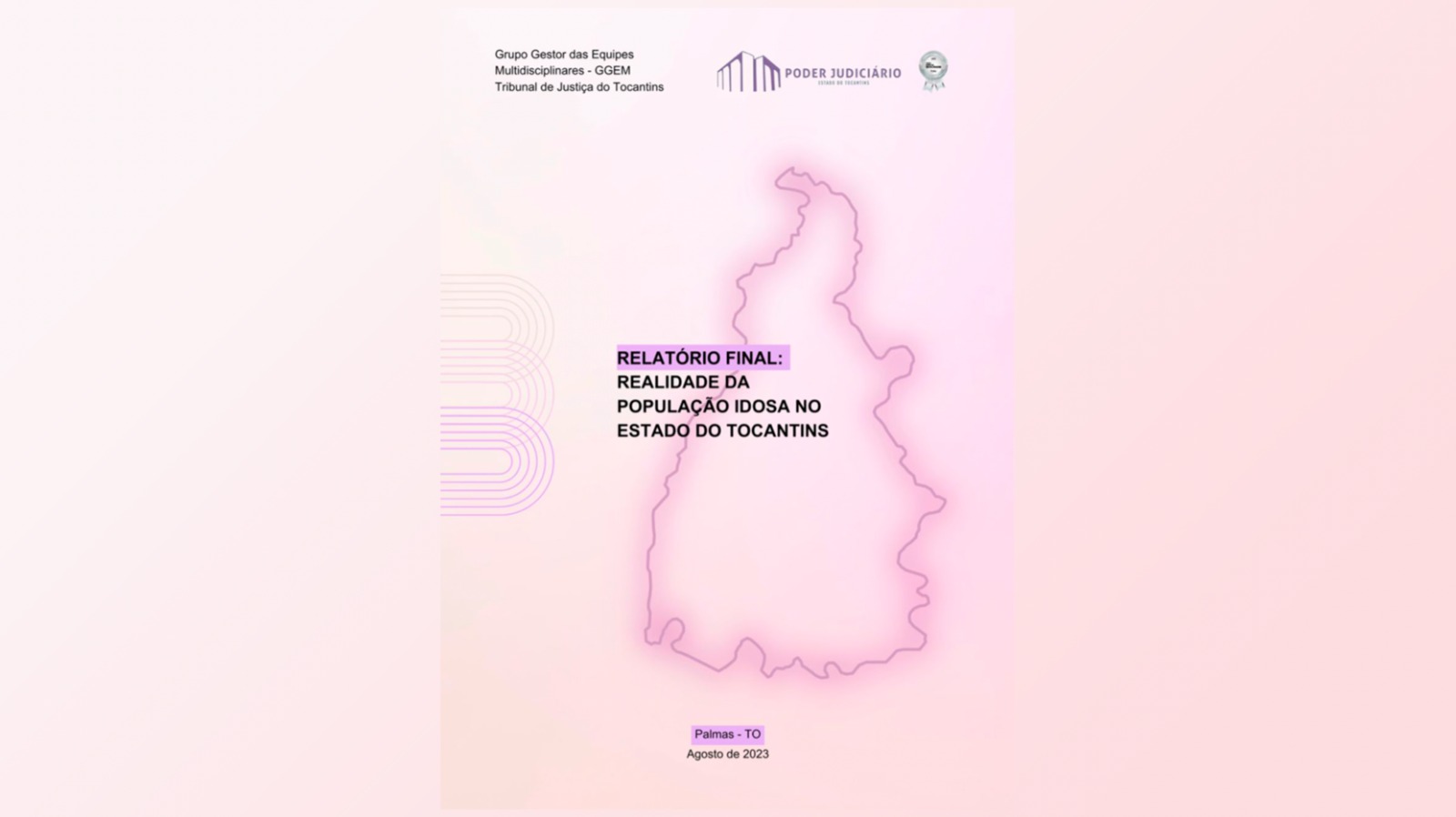
The "Reality of the Elderly Population in the State of Tocantins" survey was released on Monday (October 2nd) during the first edition of the Seminar on the Elderly in the Judiciary. An unprecedented survey in the State, it outlines the demographic, social, economic, judicial and epidemiological profile of this section of the population, as well as presenting an overview of violence against the elderly in the State and mapping the existing care, attention and protection networks in the 139 municipalities of the State of Tocantins.
The research carried out by the Management Group of the Multidisciplinary Teams of the Court of Justice of the State of Tocantins (GGEM/TJTO), focusing on the reality of the State between 2018 and 2022, is in line with the Goal 2C of the General Internal Affairs of Justice (CGJUS), in fulfillment of the macro-challenge "strengthening the institutional relationship of the Judiciary with society". In all, the study lasted a year, with the participation of 133 researchers accredited by the Judiciary, with backgrounds in Pedagogy, Psychology and Social Work.
The data was collected from institutions such as the Court of Justice, the Department of Public Security, the State Prosecution, the Public Defender's Office, the Ministry of Human Rights and Citizenship and the Council for the Right of the Elderly, the INSS, the IBGE, as well as from facilities in the care, assistance and protection network for the elderly.
According to the survey, violence against the elderly is a social, political and public health problem, "highlighting the importance of public policies from a broader perspective of interventions and the development of mechanisms to mitigate the high rates of violence against the elderly". Among them, the study highlights actions that favor autonomy, knowledge about their rights, the protection network and, consequently, improvements in the quality of life of this part of the population.
Profile
According to the IBGE (2022 Census), the elderly population in the State of Tocantins is 184,099, representing 12.2% of the general population of the State. Of this total, 101,500 are aged between 60 and 69; 55,600 are aged between 70 and 79; 22,200 are in their 80s; and 4,200 are aged between 90 and 99. There are 316 people over the age of 100 throughout the State.
PNAD data revealed that around 7.1% of the population in the labor market is over 60, and around 30 out of every 1,000 elderly people live alone in the State.
With regard to the epidemiological profile, in the five-year period covered by the survey, 79,799 elderly people were hospitalized due to several morbidities, with eight of the main causes of hospitalization (diseases of the circulatory system being in first place). Another important piece of information provided in the survey is the morbidity and mortality rates due to external causes. External causes are the result of factors such as: falls, self-injury, violence, transport accidents, assaults, among others.
From an economic point of view, the results presented on the elderly population covered by Social Security revealed gender inequality in the distribution of Social Security benefits, with a higher proportion of male beneficiaries compared to female beneficiaries; and an increase in the average per capita income of the elderly population was observed, in line with the annual increases in the minimum wage.
Panorama of Violence
The research made it possible to estimate the number of elderly victims of violence in the State of Tocantins, identifying the main forms of violence committed, characterizing the victim and the aggressor, the relationship between them and the scene of the incident. It was also possible to identify the counties with the highest rates of violence in the State of Tocantins.
The study points to institutional, physical and psychological violence with the highest numbers, and recent data on violence puts the State of Tocantins in first place in the percentage of growth in complaints against the elderly (from January to May 2023), compared to the same period in 2022 - an increase of 115%.
Care Network
The network of care, protection and assistance for the elderly is understood as the combination of several policies, sectors, instances, equipment and institutions committed to protecting, caring for, assisting, and guaranteeing the rights of this public. They are devices involved in ensuring the basic fundamental rights of the elderly population, such as the right to life, health, food, education, culture, sport, leisure, work, citizenship, freedom, dignity, respect and family and community life.
According to the survey, the State of Tocantins currently has 1,396 equipments available to assist the elderly, located in 139 municipalities, as shown on the interactive map.
In quantitative terms, the District of Gurupi has 155 equipments mapped, followed by the District of Palmas, where 119 equipments are located, and Porto Nacional, with 87 facilities.




